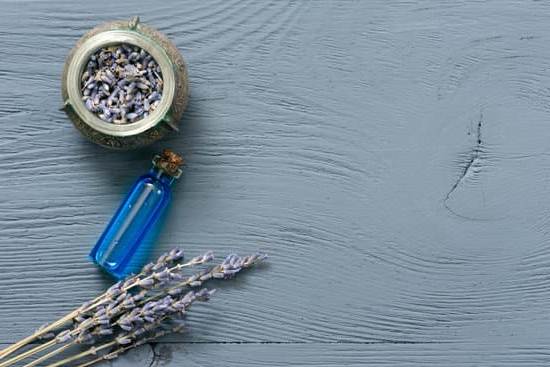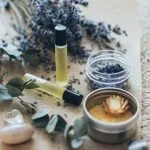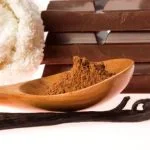CPAP aromatherapy is gaining popularity as a complementary therapy for sleep apnea. This innovative approach combines the use of essential oils with Continuous Positive Airway Pressure (CPAP) therapy to enhance relaxation and promote better quality sleep.
CPAP therapy is a common treatment for obstructive sleep apnea, providing a steady stream of air pressure to keep the airways open during sleep. On the other hand, aromatherapy involves the use of natural plant extracts to promote overall well-being, including stress relief and improved sleep quality.
Aromatherapy has long been recognized for its calming and therapeutic effects on the mind and body. By incorporating essential oils into CPAP therapy, individuals with sleep apnea may experience enhanced relaxation, reduced anxiety, and improved adherence to treatment. The combination of CPAP therapy and aromatherapy aims to address both the physical and psychological aspects of sleep apnea, offering a holistic approach to managing this condition.
In this article, we will delve into what CPAP aromatherapy entails, how it can benefit individuals undergoing CPAP therapy, and most importantly, whether it is safe to use essential oils in conjunction with CPAP machines. Understanding the potential advantages of CPAP aromatherapy and addressing any safety concerns will help individuals make informed decisions about incorporating aromatherapy into their sleep apnea treatment regimen.
What Is CPAP Therapy
Continuous Positive Airway Pressure (CPAP) therapy is a common treatment for obstructive sleep apnea, a condition characterized by pauses in breathing during sleep. CPAP therapy involves using a machine that delivers a constant flow of air through a mask worn over the nose or mouth while sleeping. The airflow helps keep the airways open, preventing interruptions in breathing and improving the quality of sleep.
To understand how CPAP therapy works, it is essential to grasp the mechanism behind obstructive sleep apnea. During sleep, the muscles in the back of the throat relax, causing the throat to narrow or close as one breathes in. This can lead to breathing difficulties and disrupt normal sleep patterns. CPAP therapy works by creating enough air pressure to keep the upper airway passages open, allowing for uninterrupted breathing during sleep.
Using aromatherapy in conjunction with CPAP therapy can enhance its effectiveness by promoting relaxation and further improving sleep quality. Aromatherapy involves inhaling essential oils extracted from plants to trigger specific responses in the body and mind. When combined with CPAP therapy, aromatherapy can create a soothing environment conducive to restful sleep. Some popular essential oils used for aromatherapy include lavender, eucalyptus, peppermint, and chamomile, each with its therapeutic properties that can complement CPAP therapy.
- Essential oils such as lavender can help reduce anxiety and improve overall relaxation.
- Eucalyptus oil is known for its respiratory benefits and can clear nasal passages for easier breathing.
- Peppermint oil has a refreshing scent that may boost energy levels during the day while still promoting relaxation at night.
Using essential oils with CPAP therapy should be done cautiously to ensure safety and avoid potential adverse effects on respiratory health. It is essential to follow specific guidelines when incorporating aromatherapy into your CPAP routine:
- Use high-quality essential oils from reputable sources to ensure purity.
- Dilute essential oils properly before use to prevent skin irritation or respiratory issues.
- Cleanse your CPAP equipment regularly to prevent buildup from using essential oils.
- Avoid using strong or potentially irritating oils that may cause discomfort or allergic reactions.
By following these safety tips and being mindful of proper usage practices, incorporating aromatherapy into your CPAP therapy routine is generally safe and can offer additional benefits in managing sleep apnea symptoms effectively while promoting relaxation for better sleep quality.
What Is Aromatherapy
Aromatherapy is a holistic healing treatment that uses natural plant extracts to promote health and well-being. These essential oils have been used for centuries for their therapeutic properties, including promoting relaxation, reducing stress, and improving sleep quality. Aromatherapy can be administered through inhalation, topical application, or even ingestion under the guidance of a certified aromatherapist.
The use of aromatherapy in promoting relaxation and sleep is based on the idea that certain scents can affect the limbic system in the brain, which is responsible for emotions, behavior, and memory. By inhaling specific essential oils like lavender, chamomile, or peppermint, individuals may experience a calming effect that helps them unwind before bedtime. This relaxation response can also help reduce feelings of anxiety or insomnia, ultimately improving overall sleep quality.
Aromatherapy has been found to be a complementary therapy that can enhance traditional treatment methods like CPAP therapy for sleep apnea. By combining the benefits of aromatherapy with the continuous positive airway pressure provided by a CPAP machine, individuals may experience improved comfort during sleep and better adherence to their treatment regimen. However, it is important to consider safety concerns when using aromatherapy with CPAP machines to ensure effectiveness without compromising health.
How Does CPAP Aromatherapy Work
CPAP aromatherapy combines the benefits of both CPAP therapy and aromatherapy to enhance the quality of sleep for individuals with sleep apnea. The concept involves using essential oils or fragrances in conjunction with a CPAP machine to promote relaxation, reduce anxiety, and improve overall sleep quality.
By incorporating aromatherapy into CPAP therapy, users can experience a more soothing and calming environment during their sleep cycles. This holistic approach aims to address not only the physical aspects of sleep apnea but also the mental and emotional challenges that often accompany the condition.
Using Aromatherapy Diffusers
One common way to incorporate aromatherapy into CPAP therapy is by using aromatherapy diffusers. These devices are designed to disperse essential oils into the air, allowing users to inhale the therapeutic scents while wearing their CPAP masks.
By choosing calming essential oils such as lavender, chamomile, or eucalyptus, individuals can create a relaxing atmosphere conducive to better sleep. It is important to ensure that the chosen essential oils are safe for inhalation and do not interfere with the functioning of the CPAP machine.
Adding Essential Oils Directly to CPAP Humidifiers
Another method of integrating aromatherapy into CPAP therapy is by adding essential oils directly to CPAP humidifiers. Some individuals opt to place a few drops of essential oil onto the water tank of their CPAP machines before use.
This allows for a subtle infusion of fragrance into the air delivered through the CPAP mask. However, it is crucial to consult with a healthcare provider before adding any essential oils directly to CPAP humidifiers to ensure that it does not pose any risks or affect the efficacy of treatment.
Customizing Aromatherapy Preferences
Individuals exploring CPAP aromatherapy have the opportunity to customize their aromatherapy preferences based on personal preferences and needs. Whether someone seeks relaxation, stress relief, or improved focus during sleep, there are numerous essential oils available that cater to specific desired effects. Experimenting with different scents and blends can help users find what works best for them in enhancing their overall sleep experience while safely utilizing this complementary therapy alongside their CPAP treatment regimen.
Benefits of CPAP Aromatherapy
Aromatherapy is the practice of using natural plant extracts, such as essential oils, to promote health and well-being. When combined with CPAP therapy, which involves the use of a machine to deliver continuous positive airway pressure to individuals with sleep apnea, aromatherapy can offer additional benefits for improving sleep quality and overall treatment effectiveness.
One key advantage of CPAP aromatherapy is its ability to enhance relaxation and promote a sense of calm before bedtime, helping individuals unwind and prepare for a restful night’s sleep.
Incorporating aromatherapy into CPAP therapy can also address issues such as nasal congestion or throat irritation that are commonly associated with using CPAP machines. For example, certain essential oils like eucalyptus or lavender have decongestant and soothing properties that may help alleviate these symptoms and improve breathing during sleep.
Additionally, the pleasant scents of essential oils used in aromatherapy can create a more enjoyable and relaxing sleep environment, which is conducive to better adherence to CPAP therapy in the long run.
Furthermore, studies have shown that certain essential oils used in aromatherapy have potential benefits for reducing anxiety, stress, and insomnia – all of which are common issues faced by individuals with sleep apnea. By incorporating aromatherapy into CPAP therapy, individuals may experience improved mental well-being along with better sleep quality. It is important to note that when done correctly and following safety guidelines, CPAP aromatherapy can be a safe and effective complementary therapy for managing sleep apnea symptoms.
| Benefits of CPAP Aromatherapy | Potential Benefits |
|---|---|
| Enhances relaxation | Promotes a sense of calm before bedtime |
| Alleviates nasal congestion | Helps improve breathing during sleep |
| Reduces anxiety and stress | Promotes better mental well-being |
Safety Concerns
Continuous Positive Airway Pressure (CPAP) therapy is a common treatment for sleep apnea, a condition that can cause breathing interruptions during sleep. CPAP therapy involves the use of a machine that delivers a continuous flow of air through a mask worn over the nose or mouth, helping to keep the airway open and prevent breathing issues.
Aromatherapy, on the other hand, is a complementary therapy that involves the use of essential oils to promote relaxation and improve sleep quality. When combined, CPAP aromatherapy is believed to enhance the effectiveness of CPAP therapy by creating a more soothing and calming environment for better sleep.
When considering the safety of using aromatherapy with CPAP machines, it is important to address some common concerns. One primary concern is the potential for irritation or allergic reactions from essential oils when inhaled consistently over time. Another worry is whether aromatherapy could interfere with the functioning of the CPAP machine or its components. Additionally, there may be apprehension about how aromatherapy could impact overall sleep quality and respiratory health in individuals with sleep apnea.
To ensure safe and effective use of CPAP aromatherapy, here are some practical tips to keep in mind:
- Choose high-quality essential oils from reputable sources to minimize the risk of impurities or adulteration.
- Start with mild scents and gradually introduce stronger oils to gauge individual sensitivity.
- Keep essential oils away from direct contact with CPAP machine components to prevent damage.
- Clean your CPAP equipment regularly according to manufacturer guidelines to prevent buildup of oil residue.
By following these tips and being mindful of potential safety concerns, individuals can enjoy the benefits of CPAP aromatherapy as a safe and holistic approach to managing their sleep apnea symptoms.
Tips for Safe CPAP Aromatherapy
Using aromatherapy with CPAP therapy has become increasingly popular as a complementary approach to treating sleep apnea. By incorporating essential oils into the CPAP routine, individuals can enhance relaxation and promote better sleep quality. However, ensuring the safe use of aromatherapy with CPAP machines is crucial to avoid any potential risks or side effects.
One important tip for safe CPAP aromatherapy is to choose high-quality essential oils that are specifically labeled as safe for diffusing. Not all essential oils are suitable for inhalation, and some may even cause irritation or allergic reactions when used with a CPAP machine. It is recommended to consult with a healthcare provider or aromatherapist before using any new essential oil to ensure its safety and compatibility with CPAP therapy.
Another essential tip is to properly clean and maintain the CPAP equipment regularly when using aromatherapy. Essential oils can leave residue in the tubing, mask, or humidifier chamber, which may lead to bacterial growth or mold if not cleaned properly. It is advisable to follow the manufacturer’s guidelines for cleaning the CPAP components and replace any parts that show signs of wear or damage due to prolonged exposure to essential oils.
Furthermore, it is important to start with low concentrations of essential oils when beginning CPAP aromatherapy and gradually increase the amount based on personal preferences. Overusing powerful essential oils or using too high concentrations can be overpowering and may cause discomfort or adverse reactions during sleep. Monitoring how the body responds to different scents can help determine the most suitable essential oils for enhancing relaxation and improving sleep quality while using a CPAP machine.
Conclusion
In conclusion, CPAP aromatherapy can be a safe and effective complementary therapy for individuals undergoing CPAP treatment for sleep apnea. By combining the benefits of continuous positive airway pressure therapy with the soothing effects of aromatherapy, patients may experience improved relaxation, better sleep quality, and enhanced overall well-being. The use of essential oils or aromatherapy blends carefully selected for their calming properties can create a more conducive environment for restful sleep while using a CPAP machine.
It is essential to note that when used correctly and following proper guidelines, CPAP aromatherapy is generally considered safe for most individuals. However, safety concerns such as potential allergies to specific essential oils or components in the aromatherapy blend must be taken into consideration. Additionally, ensuring that essential oils are properly diluted and used in moderation can help prevent any adverse reactions or irritations.
Overall, incorporating aromatherapy into CPAP therapy not only adds a pleasant touch to the treatment but also has the potential to enhance its therapeutic benefits. By understanding the basics of both CPAP therapy and aromatherapy, patients can make informed decisions about integrating these two approaches for managing sleep apnea effectively. Remember that consulting with a healthcare provider or a qualified therapist before starting any new therapy is always recommended to ensure its appropriateness and safety for individual needs.
Frequently Asked Questions
Is It Safe to Put Essential Oils in CPAP?
Putting essential oils in a CPAP machine is generally not recommended because inhaling concentrated oils can irritate the airways, causing potential respiratory issues. It is best to consult with a healthcare provider before using essential oils in a CPAP.
How Does CPAP Aromatherapy Work?
CPAP aromatherapy involves adding essential oils to a diffuser located near the CPAP machine or mask. The aromatic molecules are then inhaled while using the CPAP device, providing a calming and soothing effect that may enhance sleep quality for some users.
Is Diffusing Essential Oils Safe for Your Lungs?
Diffusing essential oils can be safe for your lungs if done properly. Using a high-quality diffuser, diluting the oils with water, and ensuring proper ventilation can minimize any potential risks associated with inhaling essential oils. However, it’s important to be cautious and pay attention to how your body responds to the aroma.

Are you looking for a natural way to improve your health and wellbeing?
If so, aromatherapy may be the answer for you.





